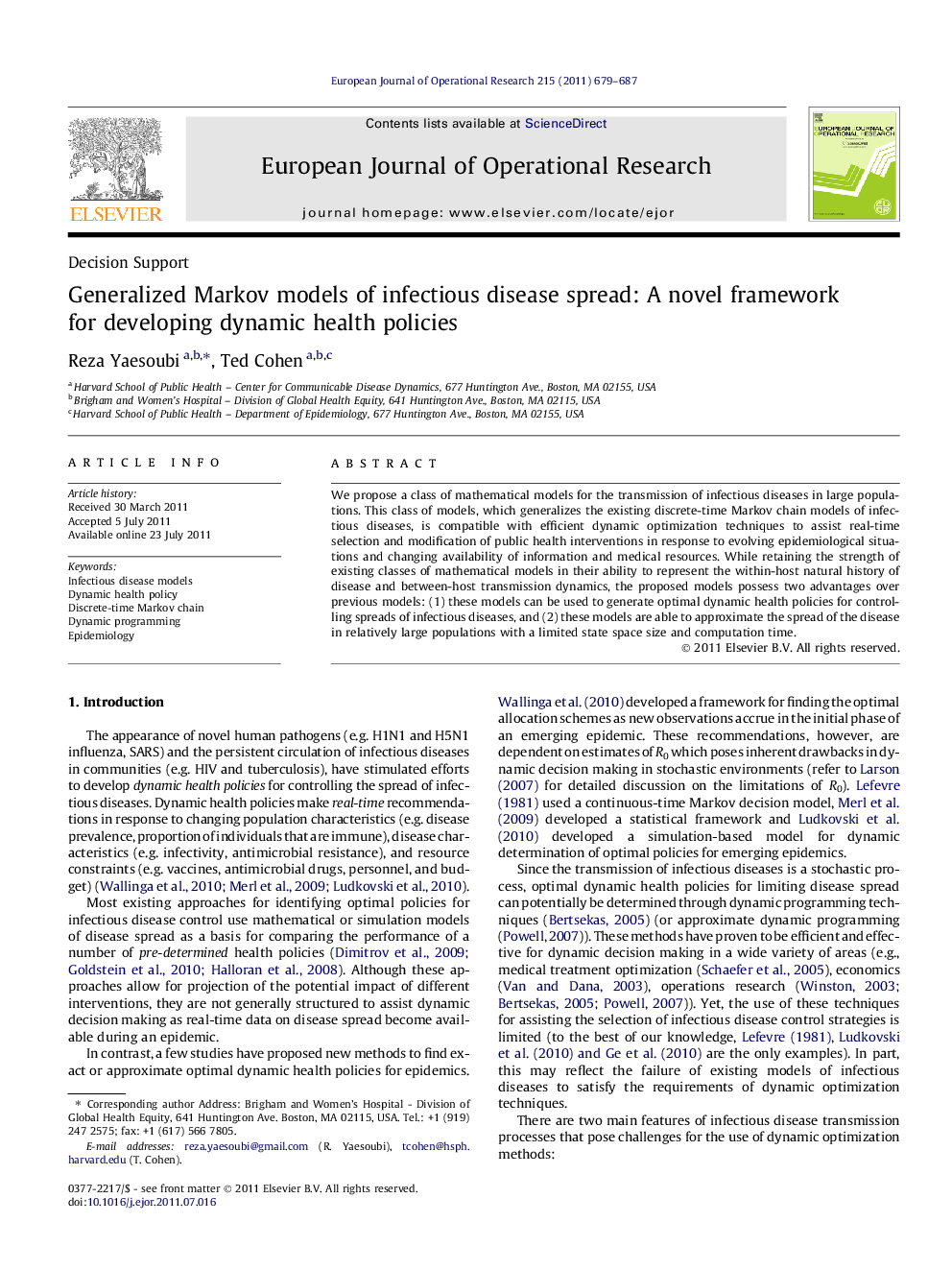| Article ID | Journal | Published Year | Pages | File Type |
|---|---|---|---|---|
| 480283 | European Journal of Operational Research | 2011 | 9 Pages |
We propose a class of mathematical models for the transmission of infectious diseases in large populations. This class of models, which generalizes the existing discrete-time Markov chain models of infectious diseases, is compatible with efficient dynamic optimization techniques to assist real-time selection and modification of public health interventions in response to evolving epidemiological situations and changing availability of information and medical resources. While retaining the strength of existing classes of mathematical models in their ability to represent the within-host natural history of disease and between-host transmission dynamics, the proposed models possess two advantages over previous models: (1) these models can be used to generate optimal dynamic health policies for controlling spreads of infectious diseases, and (2) these models are able to approximate the spread of the disease in relatively large populations with a limited state space size and computation time.
► We consider dynamic programming (DP) for the optimal control of infectious spreads. ► We discuss major limitations of using existing infectious disease models to inform dynamic decision - making. ► We propose a class of models which can be employed by DP or approximate DP. ► We demonstrate the ability of these models to fit data from an emerging epidemic.
